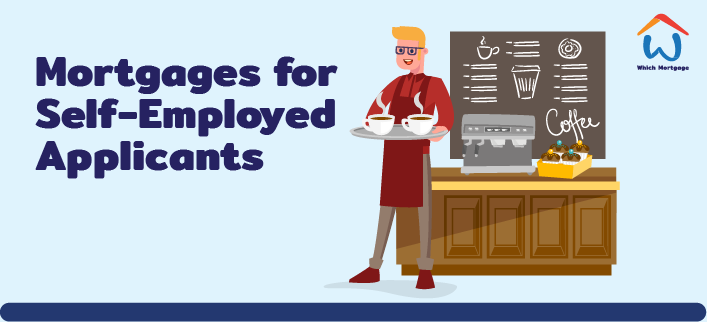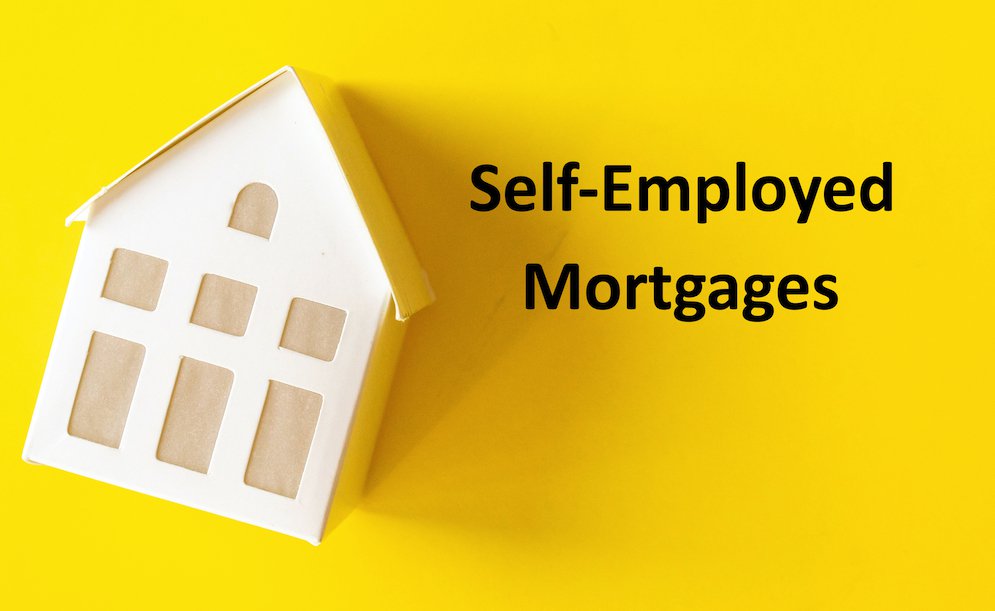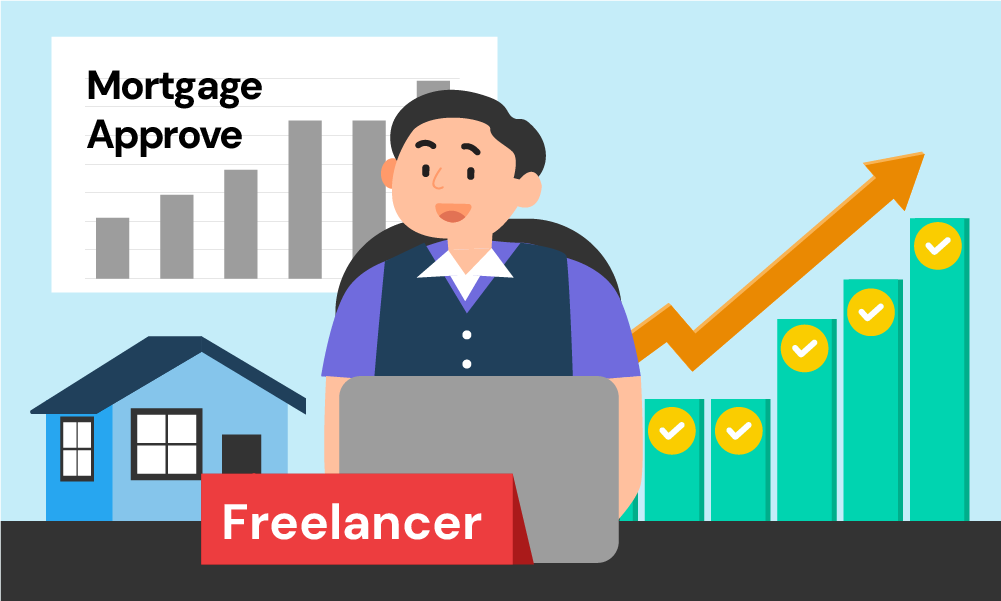Navigating the homebuying process can be a complex endeavor, especially for self-employed borrowers who often face more challenges when securing a mortgage. While being your own boss offers many advantages, it can complicate financial situations when it comes to mortgage approval. One significant aspect to consider for self-employed homebuyers is mortgage insurance.
Mortgage insurance protects lenders in case borrowers default on their loans. It’s often a requirement for those with smaller down payments or perceived higher risk profiles. For self-employed individuals, understanding the intricacies of mortgage insurance and how to navigate its requirements is essential to securing homeownership.
This guide will explore how self-employed homebuyers can secure mortgage insurance and get approved for a mortgage. We’ll also cover what freelancers and independent contractors need to know about the process and how to handle unique challenges related to self-employment income.
Self-Employed? Here’s How to Secure Mortgage Insurance and Approval

One of the biggest misconceptions is that securing a mortgage is significantly harder for self-employed borrowers compared to salaried employees. While it may involve more documentation and scrutiny, obtaining a mortgage and the required mortgage insurance is possible with proper preparation.
1. Prove Your Income Stability
Lenders are concerned with the stability and consistency of your income. Unlike salaried employees who can show their monthly pay stubs, self-employed borrowers must rely on tax returns and profit-and-loss statements to prove their income. This can be tricky, especially for those who deduct significant expenses to reduce taxable income.
To improve your chances of approval, you’ll need:
- Two years of tax returns: Most lenders require at least two years of consistent tax returns to assess your income. It’s essential to avoid showing large fluctuations in income over this period.
- Profit and loss statements: Lenders may ask for updated profit-and-loss statements to show how your business has performed in the current year.
- Additional documentation: Be prepared to provide bank statements, 1099 forms, and other records that can help verify your income. The more documentation you can offer, the more comfortable lenders will feel about approving your mortgage and insurance.
2. Maximize Your Credit Score
Just like with salaried borrowers, your credit score plays a vital role in securing mortgage insurance and loan approval. Lenders use credit scores to determine the likelihood of repayment, and higher credit scores are typically rewarded with lower interest rates and more favorable insurance terms.
To boost your credit score as a self-employed borrower:
- Pay down outstanding debt: High levels of existing debt can be a red flag to lenders. Try to pay off as much debt as possible before applying for a mortgage.
- Pay bills on time: Late payments negatively impact credit scores. Set reminders or automate payments to ensure your credit history is as clean as possible.
- Avoid opening new lines of credit: Opening new credit accounts can cause short-term dips in your credit score, so it’s best to avoid this before applying for a mortgage.
3. Increase Your Down Payment
Mortgage insurance is generally required for borrowers who cannot make a 20% down payment. This insurance protects the lender but adds additional costs for borrowers. For self-employed individuals, who may already be viewed as higher risk, a larger down payment can mitigate this perception.
Making a larger down payment can help in several ways:
- Avoid mortgage insurance entirely: If you can put down 20% or more, you won’t need to worry about private mortgage insurance (PMI). This can save you thousands over the life of the loan.
- Lower insurance premiums: If you can’t manage a 20% down payment, offering a higher down payment (even 10-15%) can still reduce the cost of PMI.
- Improve your approval odds: A larger down payment shows lenders that you have a strong financial commitment to the property, making them more likely to approve your loan.
4. Choose the Right Mortgage Type
Not all mortgage types are created equal, and some are more suited to self-employed borrowers. Understanding the different options can help you find the best loan with the most favorable mortgage insurance terms.
- Conventional loans: Conventional loans usually require PMI if you make less than a 20% down payment. PMI can be removed once you reach 20% equity in the home.
- FHA loans: FHA loans offer more lenient credit score requirements but come with mandatory mortgage insurance for the life of the loan if the down payment is less than 10%. This can make FHA loans more expensive over the long term, though they are often easier for self-employed borrowers to qualify for.
- VA loans: Veterans may qualify for VA loans, which don’t require mortgage insurance. However, there are other fees to consider, such as the VA funding fee.
Working with a lender who understands the unique circumstances of self-employed borrowers can help you choose the right mortgage and avoid unnecessary expenses.
What Self-Employed Homebuyers Need to Know About Mortgage Insurance

Mortgage insurance requirements and costs are determined based on various factors, including down payment size, loan type, and credit score. For self-employed borrowers, it’s crucial to understand how these factors play out when applying for a mortgage.
1. Private Mortgage Insurance (PMI)
If you’re a self-employed borrower pursuing a conventional loan with a down payment of less than 20%, PMI is almost inevitable. PMI protects the lender in case you default on the loan, and the premium is added to your monthly mortgage payment.
PMI Costs
PMI premiums generally range from 0.5% to 1% of the loan amount annually. For example, if you have a $300,000 mortgage, PMI could cost between $1,500 and $3,000 per year, or roughly $125 to $250 per month.
The actual cost of PMI will depend on:
- Loan-to-value (LTV) ratio: The smaller your down payment, the higher your LTV ratio, which leads to higher PMI premiums.
- Credit score: A higher credit score results in lower PMI costs. Self-employed borrowers with strong credit histories will have more favorable rates.
Removing PMI
The good news is that PMI isn’t forever. Once you reach 20% equity in your home, you can request the removal of PMI. Alternatively, once your loan balance drops to 78% of the home’s original value, your lender must automatically cancel PMI.
2. FHA Mortgage Insurance Premiums (MIP)
FHA loans are a popular choice for self-employed borrowers due to their relaxed credit score requirements. However, FHA loans come with Mortgage Insurance Premiums (MIP), which must be paid upfront and annually.
MIP Costs
FHA MIP consists of two components:
- Upfront MIP: This is 1.75% of the loan amount and is usually rolled into the mortgage.
- Annual MIP: The annual premium varies based on the loan amount and down payment but generally ranges from 0.45% to 1.05% of the loan balance. The annual premium is divided into monthly payments and added to your mortgage payment.
Duration of MIP
If your down payment is less than 10%, MIP is required for the life of the loan. If your down payment is 10% or more, MIP will be required for 11 years.
3. VA Funding Fee
For self-employed veterans or active-duty military members, VA loans are an excellent option because they don’t require mortgage insurance. However, there is a VA funding fee, which serves a similar purpose. The fee varies based on your down payment and whether it’s your first VA loan.
- First-time use with no down payment: 2.15% of the loan amount.
- Subsequent use with no down payment: 3.3% of the loan amount.
The funding fee can be rolled into the loan, and veterans with service-related disabilities may be exempt.
How to Navigate Mortgage Insurance Requirements as a Freelancer

Freelancers, contractors, and other self-employed individuals often face unique challenges when it comes to proving income and qualifying for mortgage insurance. However, with the right preparation, it’s possible to secure affordable mortgage insurance and buy your dream home.
1. Keep Detailed Financial Records
Freelancers need to have accurate, up-to-date records of their income, expenses, and profits. Keep track of all invoices, payments, and expenses related to your work. Use accounting software or work with a professional accountant to ensure everything is well-documented.
2. Consider a Co-Borrower
If your income as a freelancer is inconsistent, consider applying for a mortgage with a co-borrower. A spouse or partner with a salaried position can strengthen your application and reduce the perceived risk for lenders.
3. Be Prepared for a Higher Down Payment
Freelancers may face stricter requirements when it comes to down payments. If your lender sees your income as inconsistent, they may require a larger down payment to mitigate the risk. Having a substantial down payment ready can improve your chances of approval.
4. Shop Around for Lenders
Not all lenders specialize in working with self-employed borrowers. It’s essential to find a lender who understands the unique challenges faced by freelancers and is willing to work with you to navigate mortgage insurance requirements. Some lenders may offer specialized programs for self-employed individuals.
Conclusion
While self-employed borrowers face more hurdles in securing a mortgage, understanding mortgage insurance and its requirements can make the process smoother. By preparing your finances, keeping detailed records, and maximizing your down payment, you can increase your chances of approval. With the right approach, securing mortgage insurance and achieving homeownership as a self-employed borrower is
Read:
Mortgage Protection Insurance (MPI): Is It the Right Choice for Homeowners?
FHA Mortgage Insurance Explained: What You Need to Know
Private Mortgage Insurance (PMI) Explained
Mortgage Insurance Explained: What It Is and Why You Might Need It
